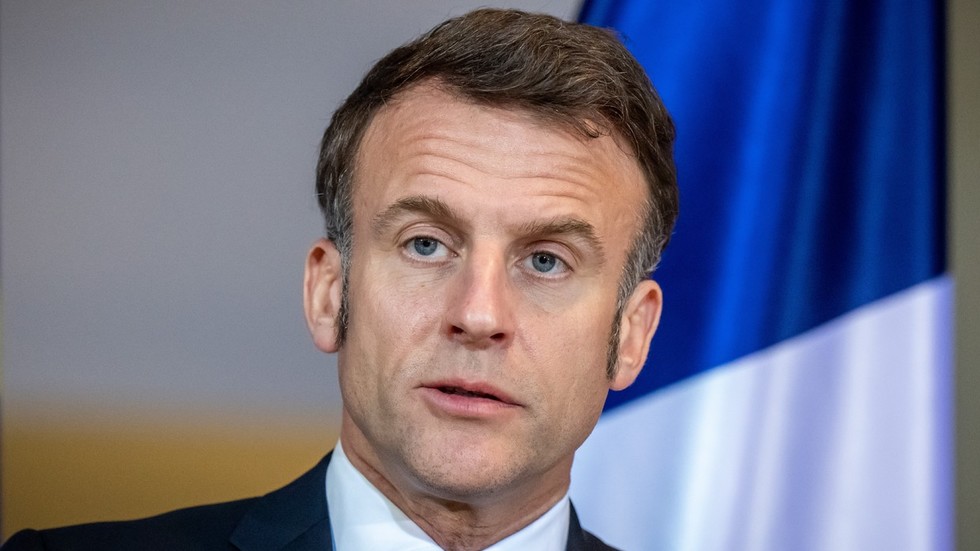Diplomatic Overtures: Will Macron Open Doors to Peace Talks with Russia?
French President Emmanuel Macron has signaled a potential shift in Western diplomacy, suggesting openness to dialogue with Russia amid escalating tensions in Ukraine. The announcement, made during a press conference in Paris on June 10, 2024, comes as Kyiv struggles to regain territory and Moscow faces mounting international isolation. Macron’s proposal raises critical questions: Is this a genuine bid for peace, or a strategic maneuver to reposition France as a mediator in the conflict?
Macron’s Surprising Shift in Tone
Macron’s remarks marked a notable departure from his earlier hardline stance. “We must explore every avenue to end this war, even if it means difficult conversations,” he stated, emphasizing the need for “realistic diplomacy.” The comments followed a closed-door meeting with German Chancellor Olaf Scholz, fueling speculation about a coordinated European approach.
Analysts point to several factors behind Macron’s pivot:
- Military Stalemate: Ukraine’s counteroffensive has yielded limited gains, with frontline movements stagnating since late 2023.
- Economic Strain: EU nations grapple with energy shortages and inflation exacerbated by sanctions on Russia.
- Global Pressure: Non-aligned states, including China and India, have repeatedly called for negotiated solutions.
Mixed Reactions from Allies and Adversaries
While Kyiv cautiously welcomed Macron’s overture, Ukrainian Foreign Minister Dmytro Kuleba stressed, “Any talks must respect Ukraine’s sovereignty and territorial integrity.” Meanwhile, the Kremlin responded ambiguously. Dmitry Peskov, Putin’s spokesperson, noted, “Russia has never refused diplomacy,” but insisted Western arms shipments to Ukraine “undermine trust.”
NATO allies remain divided. U.S. Secretary of State Antony Blinken reiterated Washington’s “unwavering support” for Ukraine, while Polish Prime Minister Donald Tusk warned, “Premature negotiations could legitimize Russian aggression.” A 2024 Chatham House report underscores the dilemma: 58% of Europeans favor peace talks, but 72% oppose territorial concessions.
The Historical Context of Franco-Russian Diplomacy
France has a long history of mediating between Moscow and the West. In 1966, Charles de Gaulle withdrew France from NATO’s military command to pursue an independent foreign policy. Macron, often compared to de Gaulle, appears to be channeling this legacy. “France sees itself as a balancing power,” explains Dr. Sophie Durand, a geopolitical analyst at Sciences Po. “Macron is betting that Europe needs autonomy from U.S. leadership to achieve stability.”
However, critics argue that Russia’s annexation of four Ukrainian regions in 2022 makes Macron’s approach risky. “Dialogue without leverage is wishful thinking,” says former NATO commander James Stavridis. “Putin only responds to strength.”
What Would Peace Talks Entail?
Potential negotiation frameworks could include:
- Ceasefire Agreements: Temporary pauses in fighting to allow humanitarian aid.
- Neutrality Guarantees: Ukraine forswearing NATO membership in exchange for security assurances.
- Sanctions Relief: Gradual lifting of economic penalties tied to Russian troop withdrawals.
Yet, obstacles abound. Ukraine’s constitution prohibits ceding territory, and Russia demands recognition of its annexed regions. A 2023 UN resolution condemning the annexations passed with 143 votes, highlighting Moscow’s isolation.
The Road Ahead: Risks and Opportunities
Macron’s initiative coincides with broader geopolitical shifts. China’s 12-point peace plan, though criticized as pro-Russian, reflects growing impatience with prolonged conflict. Meanwhile, the U.S. faces election-year uncertainties that could alter its Ukraine policy.
Experts suggest confidence-building measures, such as prisoner swaps or grain deal renewals, could pave the way for talks. “The alternative—a forever war—serves no one,” argues Durand. But with Ukraine’s President Zelensky vowing to reclaim all occupied land, compromise remains elusive.
Conclusion: A Delicate Balancing Act
Macron’s diplomatic gambit underscores Europe’s precarious position: balancing moral obligations to Ukraine with pragmatic crisis management. As winter looms, energy shortages and battlefield fatigue may intensify calls for negotiation. Whether Macron’s overture leads to breakthroughs or backfires depends on Moscow’s willingness to engage in good faith—and Kyiv’s capacity to define its own terms.
For ongoing analysis, subscribe to our Geopolitical Insights newsletter or follow live updates on diplomatic developments.
See more BBC Express News

